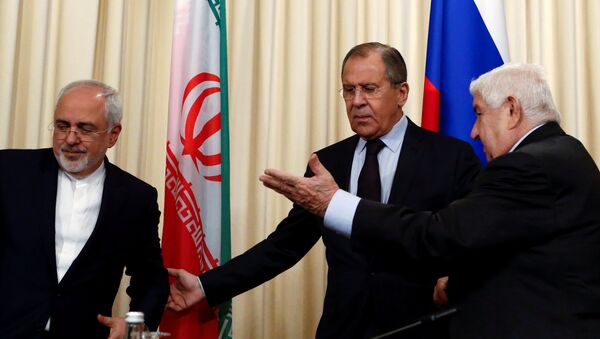"The Iranians refused to respect any agreement concluded between the [Syrian] regime and Russia. They are afraid that if war stops and there's peace in Iraq, in Syria, in Yemen and in Libya, the fight will come to Iran because you have opposition there and many issues… Russia has the power to force the regime and Iranians to accept a political solution. We hope more from Russians," Khalidi said on the sidelines of the seventh round of intra-Syrian talks in Geneva, which concluded on Friday.
Russia supported a political solution in Syria and agreed with the United States on a ceasefire in the country's southwest during the G20 summit in Hamburg. On Thursday, US President Donald Trump said the United States and Russia were discussing the second ceasefire agreement in Syria.
The seventh round of intra-Syrian talks in Geneva, which took place in the Swiss city on July 10-14, has put three participating groups of Syrian opposition closer to the creation of a single, unified delegation as never before. The three participating groups of the Syrian opposition — Riyadh-backed High Negotiation Committee, the Moscow platform and the Cairo platform — agreed on 12 basic principles for a future Syrian constitution, proposed by UN mediator Staffan de Mistura, at the expert level, and even reached general understanding among each other at the political level.
Earlier on Friday, Khalidi said he hoped that next round of intra-Syrian talks in Geneva, expected to take part in September, would be direct negotiations between the Syrian government and the opposition.



